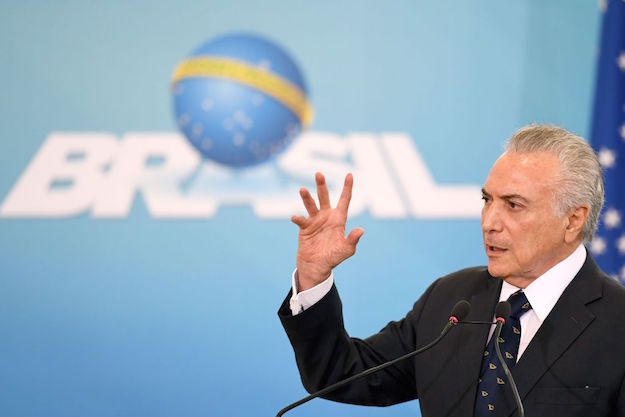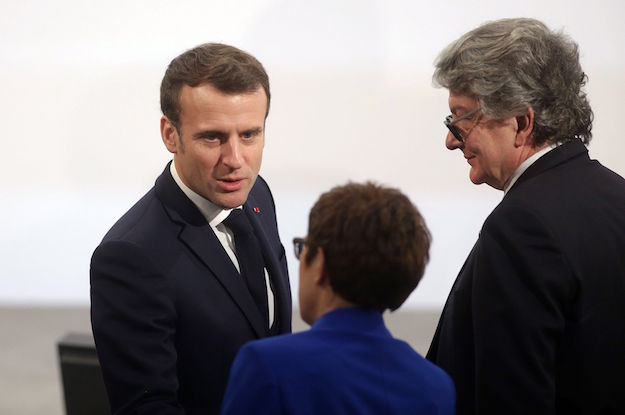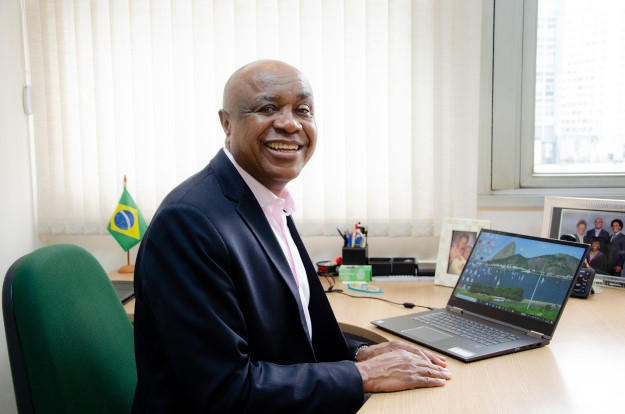Brazilian foreign policy has always been an unpredictable affair. In the 1930s, dictator Getúlio Vargas had sympathies with Nazi fascism, even modeling labor laws after Benito Mussolini’s and fostering a militant wing vaguely resembling Adolf Hitler’s. But he ended up siding with the Allies during World War II.
In the 1970s, during another authoritarian period, Brazil’s right-wing government faced up to the United States and developed improbable allies in the newly independent African countries, many of them Soviet satellites. Angolans still remember fondly the gesture of President Gen. Ernesto Geisel in recognizing their Marxist government, the first country in the world to do so.
Throughout much of the 20th century, Itamaraty, as Brazil’s powerful Foreign Ministry is known, behaved as a pendulum, at times offering support to the major powers of the Western world, at others nurturing ambitions to be a leader of the Third World – or, in today’s preferred term, the Global South.
As a huge, economically powerful country, with extensive cultural connections to many parts of the world and competing visions of the national interest in its vibrant democratic fabric, such ambiguities are to be expected. Brazilian diplomacy has never followed simple logic. Still, the pace and degree of change in the new century has puzzled even seasoned foreign policy watchers.
In 2002, Luiz Inácio Lula da Silva, a former trade union leader, was elected president on his fourth try. To win the confidence of the markets and the middle class, he promised fiscal responsibility and macroeconomic prudence. Such an orthodox recipe was distasteful to large parts of his social base, which expected nothing short of a redistributive revolution.
As if to offer some compensation, the new president elevated foreign policy to a prominent role it had rarely enjoyed in decades prior – and cast it in a decidedly left-wing mold. With the hyperactive Celso Amorim at the head of Itamaraty, Lula resurrected the “independent foreign policy” rhetoric of the military era – the same regime that had him persecuted and briefly jailed in the early 1980s.
During Lula’s eight-year tenure, he and Amorim convened and led a coalition of the poor in global trade talks; forged an alliance with China, Russia, India and South Africa (the BRICS group); and helped create a left-wing sphere in Latin America, offering diplomatic cover to radical regimes like Venezuela, Cuba, Ecuador, Bolivia and Nicaragua.
The president opened dozens of embassies and traveled intensely to Africa and the Middle East. He overlooked human rights issues in places like Sudan and Iran in the name of South-South solidarity. Military agreements were initiated with tyrannies such as Equatorial Guinea.
In many ways, Lula’s period was a golden era of economic growth buoyed by high commodity prices, redistribution of wealth, and elevated Brazilian self-esteem. But seen in retrospect, it was also a period of fiscal and political irresponsibility, at home but also in the foreign arena. It was a moment of euphoria that all too soon collapsed into a catastrophic failure.
It is hard to pinpoint an event that provoked the change of fortunes, but the Lava Jato (Car Wash) operation, a major investigation that has tried and jailed dozens of politicians and tycoons since 2014, is the best bet. In December 2016, a devastating report from the U.S. Department of Justice summarized the corrupt methods of Odebrecht, Brazil’s largest construction company. Nearly $1 billion in graft was paid out to 12 Latin American and African countries.
This report was a strong indictment of Brazilian foreign policy. Much of Odebrecht’s expansion and its operations abroad were financed by Brazil’s official investment bank, BNDES, under the government’s aegis. Odebrecht and similar companies followed in the wake of the president’s lobbying, which helped open up new markets and grab generous contracts abroad. These same companies, it was later revealed, paid millions of dollars in speaking fees to Lula after he left government.
By 2016, commodities prices had dropped and Brazil’s then-President Dilma Rousseff, Lula’s handpicked successor, had negligible interest in the foreign agenda. Faced with a deep recession, an ambitious and ruthless opposition, and the Lava Jato investigation still operating at full steam, her impeachment was a question of time. It materialized in April 2016.
The new government, under her former vice-president, Michel Temer, has once again honored the tradition of swinging its foreign policy pendulum in a new direction. The hangover after the euphoria has been hard. Brazil has, for all effects, withdrawn from the global stage. This is partly for practical reasons, as Temer has enough trouble dealing with corruption allegations of his own and trying to fix the economy.
But it is also a matter of strategy. The new government, a coalition of centrists, liberals and right-wingers, is interested in mending ties with rich countries, which they consider an economic imperative. It is not at all eager to forge relations with the developing world, much less to excuse the behavior of the likes of Venezuela’s President Nicolás Maduro. In global forums such as the G-20 or the BRICS summit, Temer was irrelevant. In fact, he decided to attend only at the last minute.
If he survives in office to the end of his term, which is by no means certain, Temer will be replaced in just under 18 months by an elected successor. He or she then will have to decide, as has happened in Brazil for decades, to which diplomatic role Brazil will aspire: a junior seat at the rich man’s club, or a front row spot at the poor man’s hall.
—
Fábio Zanini is the politics editor of Brazilian newspaper Folha de S. Paulo and the author of “Euforia e Fracasso do Brasil Grande” (Euphoria and Failure of Great Brazil)






